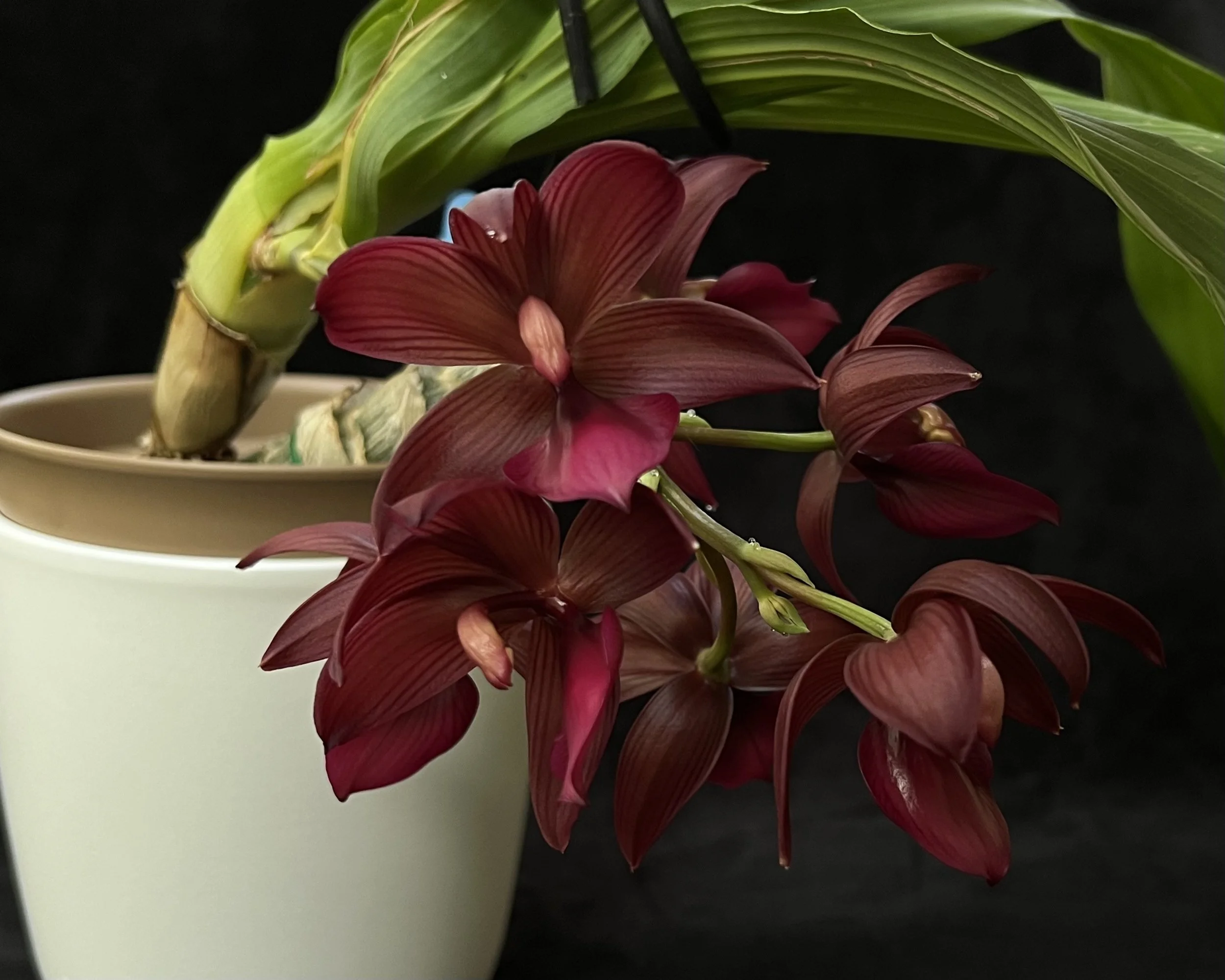Cycd Wine Delight 'J.E.M.' FCC/AOS
Cycnodes Wine Delight 'J.E.M.' FCC/AOS
(Cyc. lehmannii x Morm. sinuata)
My Wine Delight
I’ve had several of these and sold or gifted all but the one above. It is such an easy grower and you can’t believe the rich red flowers and cherry fragrance! I’ve been growing it like all my catasetenae, in pure spagnum moss. This orchid came from High Desert Orchids, which unfortunately appears to have closed permanently.
History and Features
The Cycnodes Wine Delight is a crowd favorite. Everyone wants one! This striking hybrid orchid produces clusters of richly colored flowers in deep burgundy to wine-red tones, creating a dramatic display on its arching flower spikes. Adding to its appeal, the flowers release a delightful cherry fragrance. This compact grower typically blooms once per year, with each flowering creating an impressive display of multiple fragrant blooms.
Culture
Catasetenae require different care than many other orchids. In the fall or winter they will drop their leaves, often before they bloom. I advise watching numerous video tutorials so you can decide the best protocol for your environment. Here’s a good one to get you started.
Water and Fertilizer
Active Growth (Spring-Fall)
In summer they like a lot of water but don’t let them sit in water
During the growth season, from around June to September they grow like weeds and need lots of fertilizer, 1 tsp per gallon once per week, or weaker if you water more often.
After repotting you can sprinkle slow-release fertilizer. MSU or oscmocote will work. Then fertilize during growth as usual.
Winter Dormancy
Drastically reduce or stop watering
Around December 1st stop watering completely
Resume when new growth starts
Fred Clarke advises not watering until roots are at least 6-8 inches long.
Potting and Media
Catasetum orchids are fairly forgiving and will grow in a variety of media
Medium bark (1/2 inch) with perlite, pure sphagnum moss or other well-draining media
Plastic or clay pots both work. The PET method has become very popular, although I have not tried it. Check out this tutorial on YouTube.
Additional Notes
Deciduous - loses leaves in winter
Heavy feeder during growing season
Stop fertilizing when growth slows, around October
I’ve read these tolerate slightly less light than other catasetenae so I’ll be careful about direct sun next summer.
Watch for spider mites on their leaves during the growing season. Treat them immediately or they can do a lot of damage. I sprayed mist directly into and between the leaves of all my catasetenae this summer to keep them at bay. They attack the leaves, so you won’t have issues once those drop.
The flowers on mine generally last between 3 and 4 weeks





